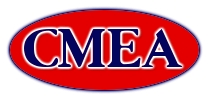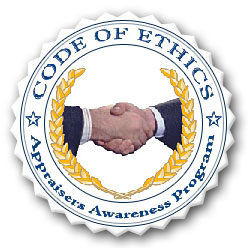The following should provide you with an overview of a typical Business Valuation appraisal assignment.
Introductory Phase One: In this phase we ask specific questions to get a better understanding of your particular circumstances for a business valuation. You are under no obligations or costs during this phase, we will offer solutions and any recommendations concerning your issues or questions.
Engagement Phase Two: Upon us investing a reasonable amount of time to understand your specific requirements, we will prepare a "professional service agreement" explaining in detail what is to be valued, along with the purpose or use of the appraisal results. The agreement will outline our fee costs and arrangement for payment.
Documentation Phase Three: This phase requires us to ask for and obtain relevant information to perform the appraisal. In a typical valuation assignment we will provide you with a "request for documents" and "questionnaire" forms for your completion.
Valuation Phase Four: In this phase we analyze financial information and adjust operational cash flows. We search for economic and industry demographic information relating to your particular business or practice. We then reconcile the different indications of value produced by various valuation methods to form a final opinion of value.
Reporting Phase Five: Davis Business Appraisers offers a wide range of appraisal services and each valuation report is documented in a selected reporting style or type depending on the purpose and use. The following is an overview of the different types of reports we offer, along with a short description.
- Appraisal Report is to express an unambiguous opinion expressed as a single dollar figure as to the value of a business or ownership interest in a detailed fashion. This type of reporting format considers all relevant information as of the appraisal date and considers all conceptual approaches deemed to be relevant by the appraiser.
- Restricted Appraisal Report provides a value for a business or ownership interest based on the performance of limited procedures agreed upon by the appraiser and client. The appraiser's workfile must contain sufficient information to produce an Appraisal Report (if requested).
- Calculated Estimate of Value provides a range of values for a business or ownership interest based on limited procedures agreed upon by the appraiser and client. The accompanying slide deck presentation conforms to the Uniform Standards of Professional Appraisal Practice (USPAP). Meaning this type of report is restricted for client's internal use only.
The essential difference between the three reporting options is in the content and level of information provided. An "Appraisal Report" is a written document, while a "Calculated Estimate of Value" is presented in a slide deck format (i.e., PowerPoint). Each report option has specific reporting rules that must be followed. The appropriate reporting option and the level of information necessary in the report are dependent on the intended use and intended users. All follow appropriate valuation standards (i.e., USPAP, ASA, IBA, ISBA).
Services Offered
Davis Business Appraisers offers a wide range of business valuation services for a variety of purposes. The following is an overview of the services offered:
ESTATE and GIFT TAX:
To develop and support the appropriate level of discount metrics to help minimize or eliminate problems with the Internal Revenue Service.
BUY-SELL TRANSACTIONS:
To help define the value for buying or selling of a business or professional practice. Also beneficial in establishing value for partial ownership interest.
PARTNERSHIP & CORPORATE DISSOLUTIONS:
It is often necessary to perform an appraisal to determine the "Fair Value" of an enterprise so the equitable parties can divide the assets and intangibles for settlement of their particular dispute.
BANK FINANCING & SBA LOANS:
It's not uncommon in today's business climate to secure favorable interest rates and loan terms. Loans are dependent upon the value of the on-going enterprises' assets and sometimes intellectual property (IP) assets. An independent business appraisal is required for certain SBA loan packages. We prepare a "summary limited" appraisal report following SBA's Standard Operating Procuedure (SOP) guidelines 50 10 5(e) and the Uniform Standards of Professional Appraisal Practice (USPAP) requirements for lending purposes.
BUY-SELL AGREEMENTS:
Value is established to avoid potential future problems for stockholders and partnership buyouts. This valuation process can greatly simplify negotiations during the term of the operating agreement.
SUCCESSION PLANNING:
Typically used when family owned businesses wish to keep the business in the family but require distribution of shares to family members with an attached "Fair Market Value" for each shareholder.
FAIRNESS OPINIONS:
The fairness opinion is a black/white finding, stating whether the deal or transaction as presented seems fair and justified. Important items include basic due diligence, analysis of risk factors, deal structure or potential conflicts.
INTANGIBLE ASSETS (Intellectual Property):
For economic analysis and valuation purposes, it is often necessary to distinguish between tangible and intangible assets, as well as between real property and personal property assets. These distinctions are important for a variety of accounting, legal, financial and taxation reasons.
FINANCIAL REPORTING (Intangible Assets and Goodwill):
Financial Accounting Standards Board (FASB) requires valuation services for allocation of the acquisition purchase price among tangible assets, identification and classification of any intangible assets, such as, patents, copyrights, trademarks, trade secrets, etc. for compliance purposes.
Business Valuations
Contact Us Today Phone: 757- 410-3851 Fax: 757- 812-5937 Email: DBAValue@gmail.com
Davis Business Appraisers
A Division of Sajomach Business Services, Inc.
Business Valuations - Certified Machinery/Equipment Appraisals - Owner & Acquisition Consulting
 | ||||






